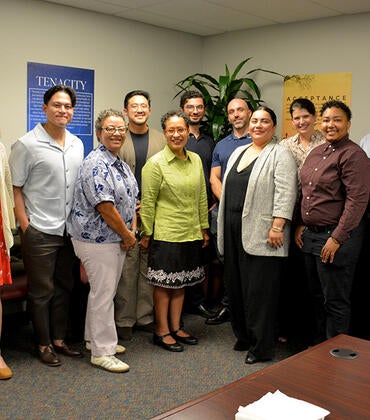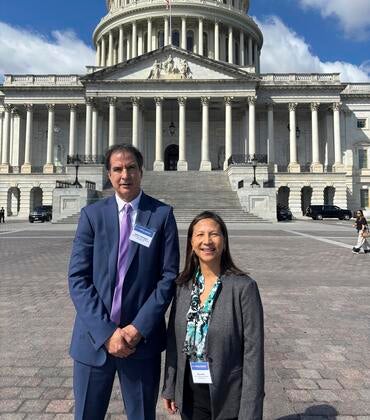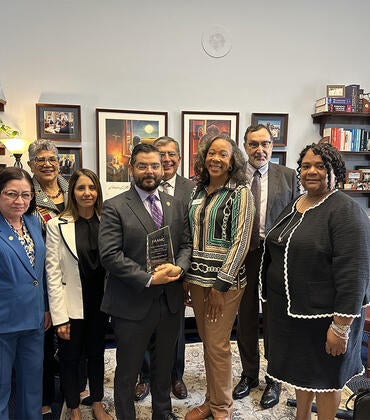
Brandon Brown, PhD, a professor in the Department of Social Medicine, Population, and Public Health at the UC Riverside School of Medicine, has been conducting numerous community partnered research projects focused on HIV and the ethics of participant payment. Noting multiple barriers to community involvement as part of the research team, he collaborated with the Collaborative Institutional Training Initiative (CITI) Program to create The Community Research Partner Training Course.
All researchers who conduct projects with human participants must already complete CITI training and receive certification that demonstrates they know how to protect their research subjects. This new training course was built with the community in mind and is designed to be more accessible to those who are not part of the academic community.
For more information about the course, please visit the CITI Program website. The site also contains a large catalog of CITI webinars, including a webinar hosted by Brown on the ethics of participant payment.
All courses are free for institutional subscribers and those who affiliate with institutional subscribers.
Below, Brown answers some questions about the course.
The CITI program already has research training courses, so why did you create this course?
All UCR faculty, staff, and students who want to conduct research with human participants must first complete CITI training and receive their certificate, which illustrates they received training to protect their research participants.
This applies to all institutions beyond UCR and UC as well. While it’s true that established CITI courses already exist to provide the required training, these courses are not as accessible to representatives of community because of the academic jargon. Community members may want to participate in the research process as part of the research team, but the courses were not built with community in mind; they were built for those trained in academia. The new Community Research Partner Training Course is designed specifically for community partners and functions as an alternative and approved, rigorous but accessible training for community members to be able to help facilitate the research process.
The goal of the course is to strengthen engagement in the research process and make a more lasting impact in research that matters to the community. By having community partners involved as members of the research team, including interacting with participants, conducting informed consent, and collecting data, sustainable skills are built both on the side of community partners and researchers themselves. Community partners learn about and see the research process firsthand, and researchers learn to work with community members as true partners in the research process, facilitating real community partnership rather than the norm of researcher-driven agendas.
What is covered in the new course?
The new course introduces the foundations of ethical and responsible research through six required modules. Topics include research basics (research vs. non research, roles in research), regulations (major ethical principles, the code of ethics, the common rule), IRB review (protocols and reporting requirements), informed consent (best practices, documentation), data collection and protection (data integrity, sharing data), and the rights and responsibilities of community partners, with emphasis on collaboration and oversight. There are two optional modules as well. One of those modules is focused on comparing community partnered research to traditional research practices (including integration of community advisory boards and avoiding helicopter research), and one on research and grant writing, subcontracts, and authorship.
How is the course organized?
This is a role-based course, in that each module has examples that reflect real-world scenarios that community partners will likely encounter while conducting research. Each module is video-based and approximately 15 to 20 minutes long, including quiz questions and case studies. By the end of the course, community partners will be equipped to participate in IRB approved data collection in research projects as part of the research team.
Why is it important for community partners to be more involved in research as part of the research team?
Community partners are often excluded from key parts of the research process, and sometimes are included when it is convenient for researchers themselves. This limits the impact of all such research. Without CITI training, community partners cannot interact with study participants in research. This new CITI course was created specifically for community partners and fills that gap. The course will improve research, because no one understands the needs of participants better than their own community. Integrating community partners into the research team will positively impact the whole life cycle of research, from improving language in the informed consent, to participant recruitment, data collection, retention, and dissemination of results. This new course will be a game changer for all research.



